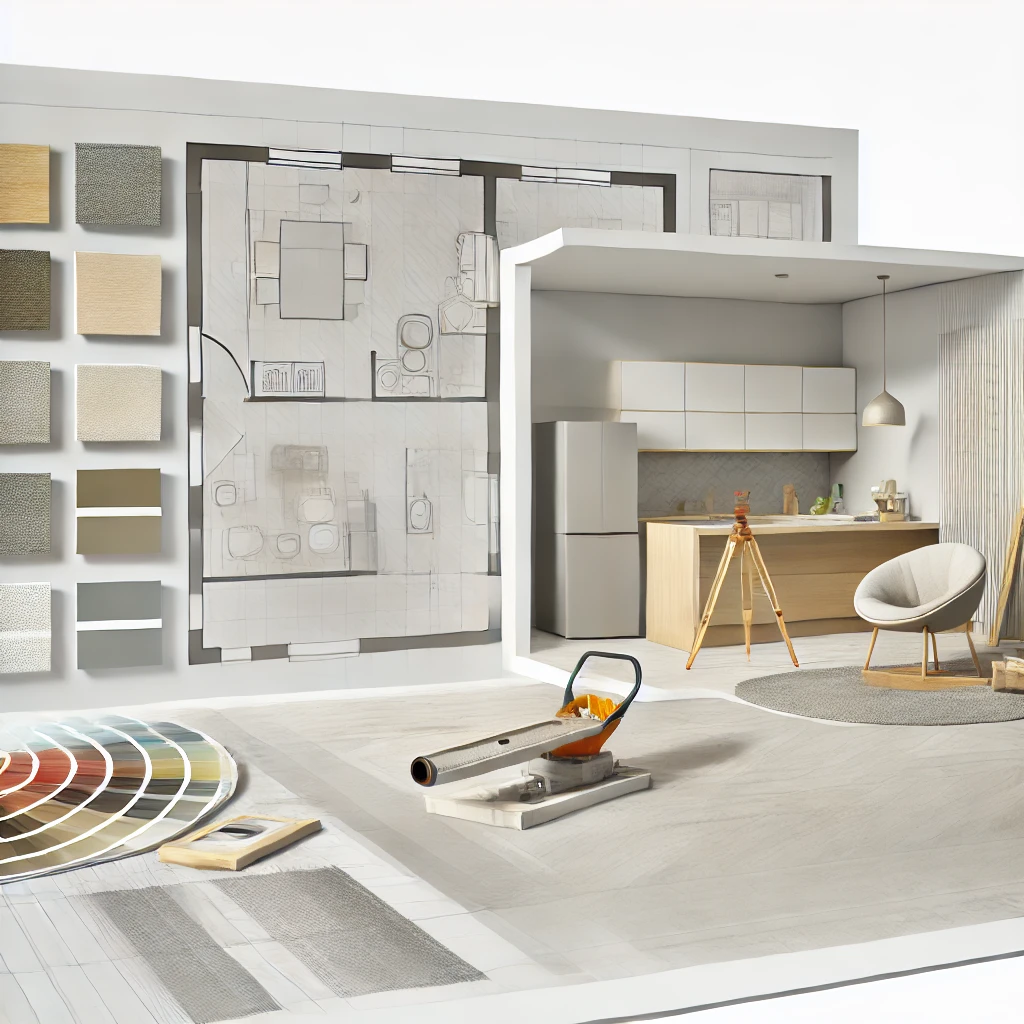
Interior Renovation Projects
Interior renovation projects encompass efforts to modernize an existing space, enhance its functionality, or improve its aesthetics.
These projects can be applied to both personal living spaces and commercial areas, requiring careful planning and meticulous execution to achieve a successful outcome.
Here are the key points to consider in interior renovation projects:
1. Identifying Needs
Before starting the renovation project, it’s crucial to clearly identify the needs and objectives of the existing space. At this stage, the areas that need renovation, the functions that need improvement, and the client’s aesthetic expectations should be taken into account.
Accurately identifying needs will determine the overall direction of the project and prevent potential issues down the line.
2.Budget Planning
3. Evaluating the Space
The current state of the area to be renovated should be carefully evaluated. This evaluation includes the structural condition of the space, the state of existing electrical and plumbing systems, and ventilation systems, among other technical elements.
If there are structural or technical issues, they must be addressed during the renovation process, and these systems should be upgraded if necessary.
4. Design and Concept Development
In a renovation project, a design and concept must be developed regarding the desired appearance and atmosphere of the space. At this stage, design elements such as color palettes, material choices, and lighting plans are determined.
The design process aims to utilize the space in the best possible way, both aesthetically and functionally. Unique and innovative solutions should be provided according to the client’s tastes and needs.
5. Legal Requirements and Permits
6. Implementation and Project Management
One of the most important stages of the renovation project is the implementation. At this stage, all planned changes are brought to life. Tight project management is required to ensure that the work is completed on time and with quality.
The coordination of elements such as labor, material supply, and logistics ensures the successful completion of the project. Moreover, maintaining continuous communication with the client ensures transparency at every stage of the project and enhances satisfaction.
